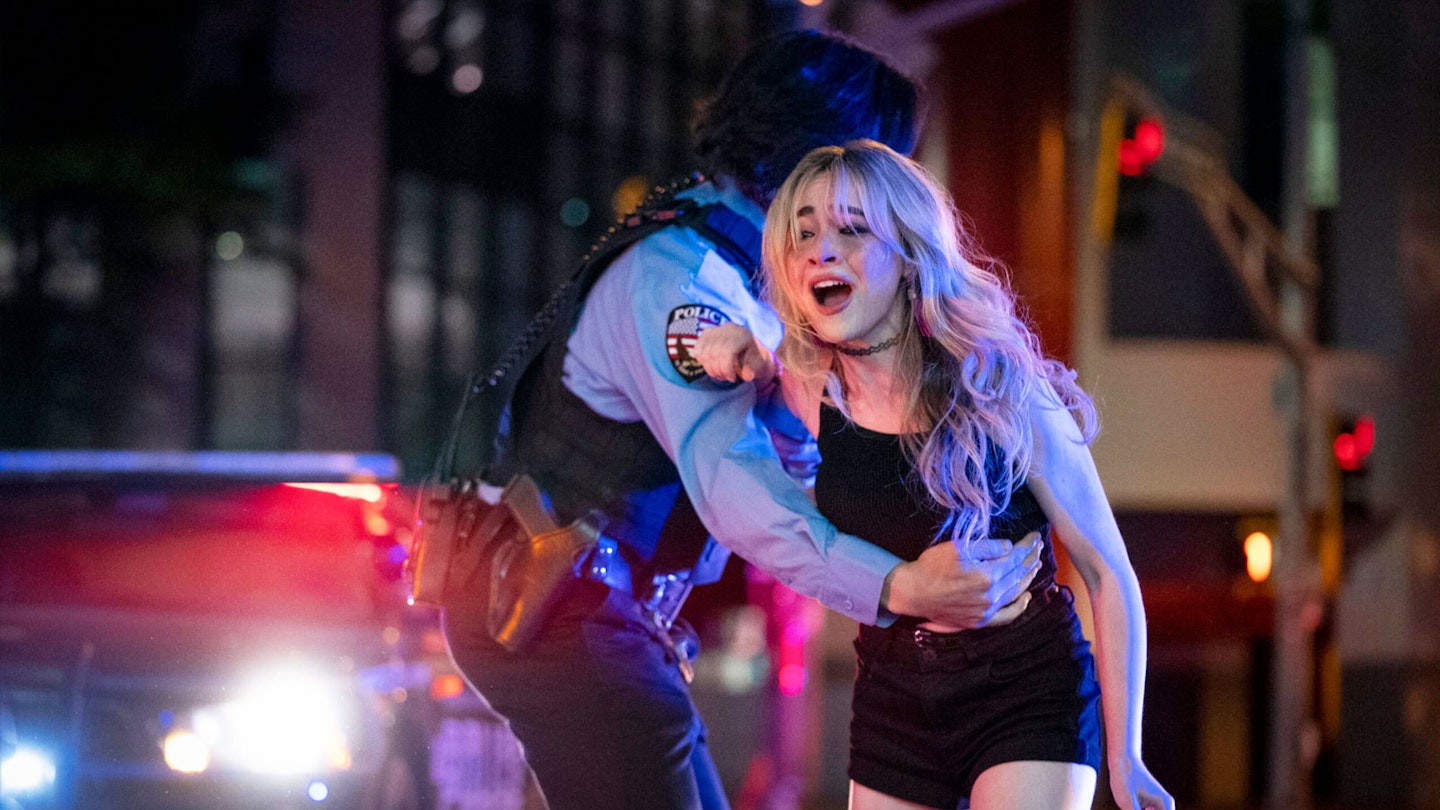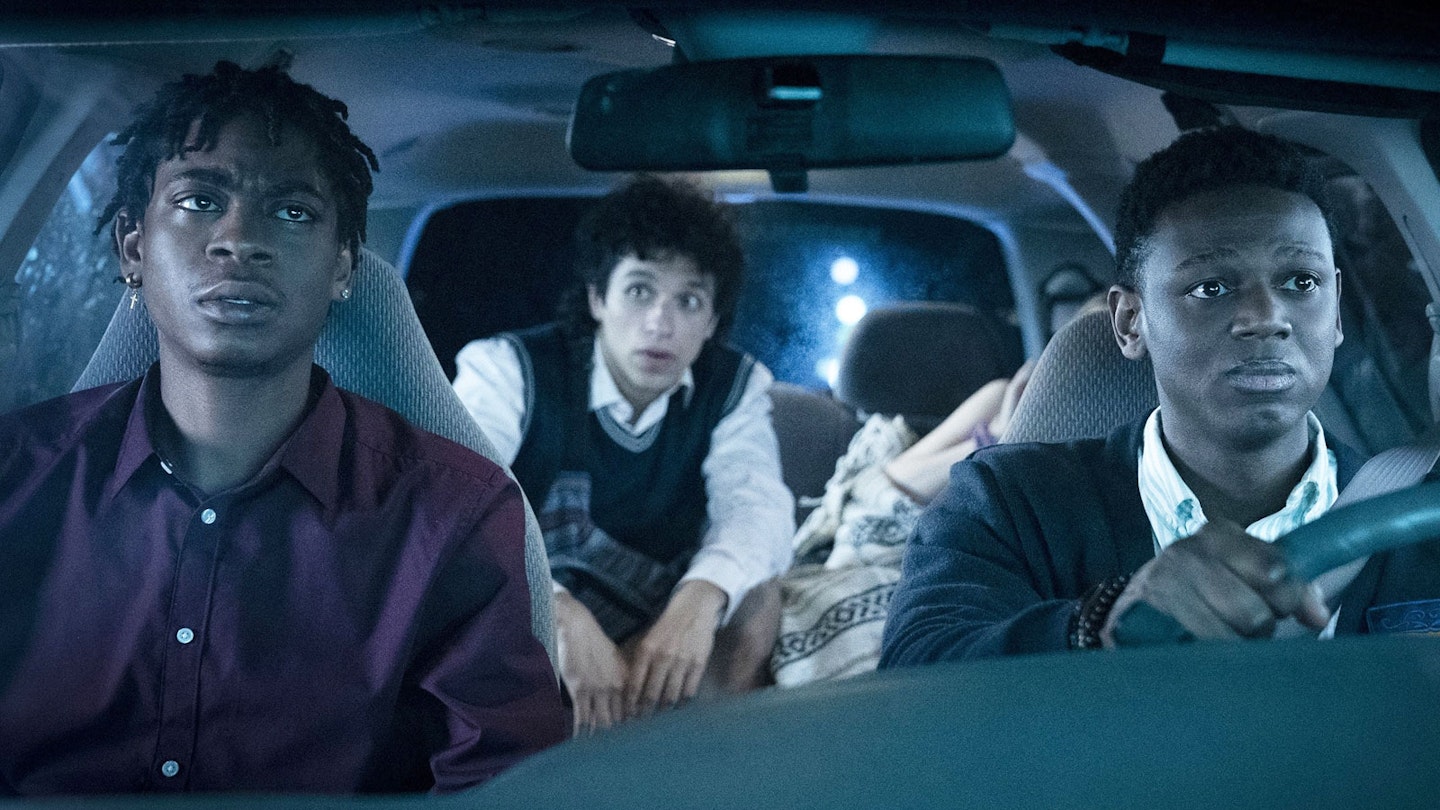Carey Williams’ sophomore feature Emergency could quite easily be read as a direct response to Superbad: its “one crazy night” set-up, its leading fraternal trio of contrasting personalities on a mission to party, their brotherly bonds at risk due to imminent change in their lives. The key difference, however: in this film, when the cops arrive on the scene, they’re not at all friendly. Emergency takes this universal fact of life for Black and brown Americans and examines the consequences on multiple levels: from the paranoid anxiety it creates in people who go to extremes to avoid becoming another government-licensed murder statistic, to that very real life-threatening danger of encountering the so-called emergency services.

In the case of this film, that means three boys — straight-A student Kunle (Donald Elise Watkins) and his slacker friends Sean (RJ Cyler) and Carlos (Sebastian Chacon) — finding a drunk white girl passed out in their living room, and just before calling the emergency services, panicking that it might mean they’ll get shot if the police turn up. The film presents it as a combination of very real, understandable fear and boneheaded, weed-infused paranoia. They’re somehow making the right and wrong decisions simultaneously, and for the most part Emergency finds a fascinating tension between a genuinely high-stakes narrative and goofy frat comedy.
Williams’ exploration of contemporary racial politics perhaps works best when it’s tied in with situational comedy.
Williams’ exploration of contemporary racial politics perhaps works best when it’s tied in with situational comedy, as the absurdity of the characters’ alarm-fuelled decisions tie back in with its observations about the different ways in which Black people and white people move through the world. It’s in the way that middle-aged onlookers accost the main characters with phones at the ready to call the police without a second thought, assuming the worst of them by dint of their appearance before angrily retreating into a house adorned by a Black Lives Matter sign.
Even then, Emergency isn’t perfect in its treatment of this theme. The camerawork feels mostly functional and devoid of the same anxiety that’s so essential to its narrative; the jukebox, party-music score doesn’t feel quite ironic enough to work. It’s also heavy-handed, perhaps too slow to start and too decompressed and meandering to properly manage its mix of tension and nervous comedy. But, thanks in no small part to the tender chemistry and fine comic timing of its lead performers, there are notes of grace and even hilarity to go with its sense of hopelessness in the face of a corrupt, heavily armed authority.
